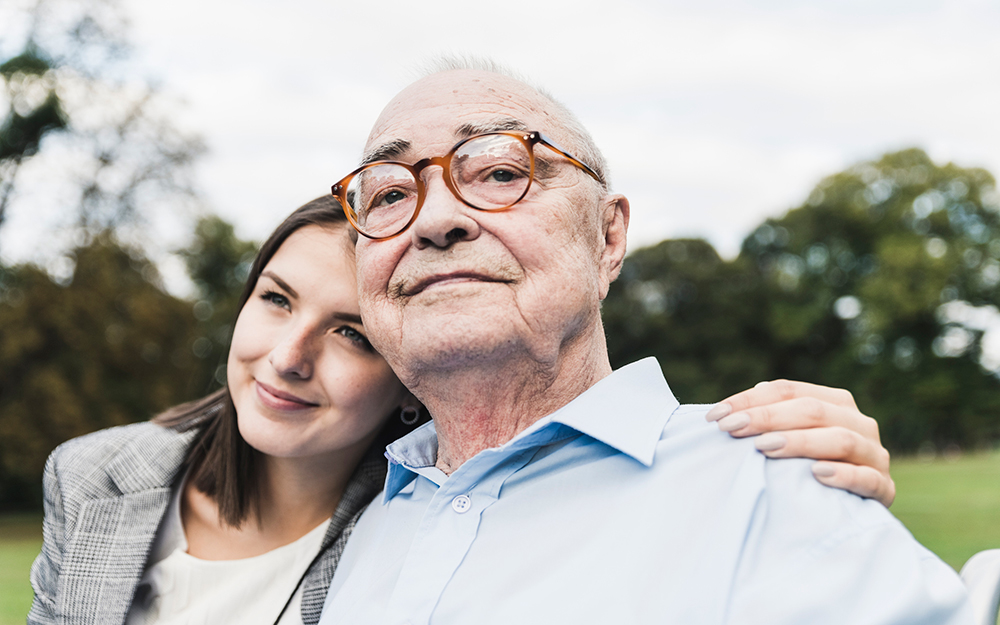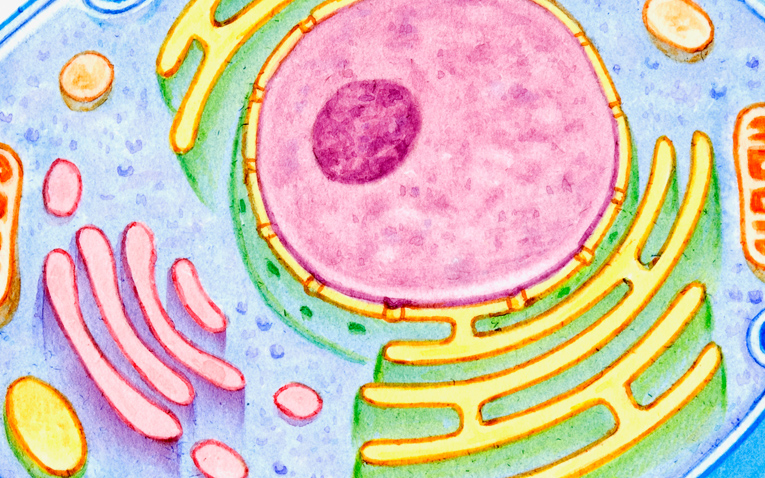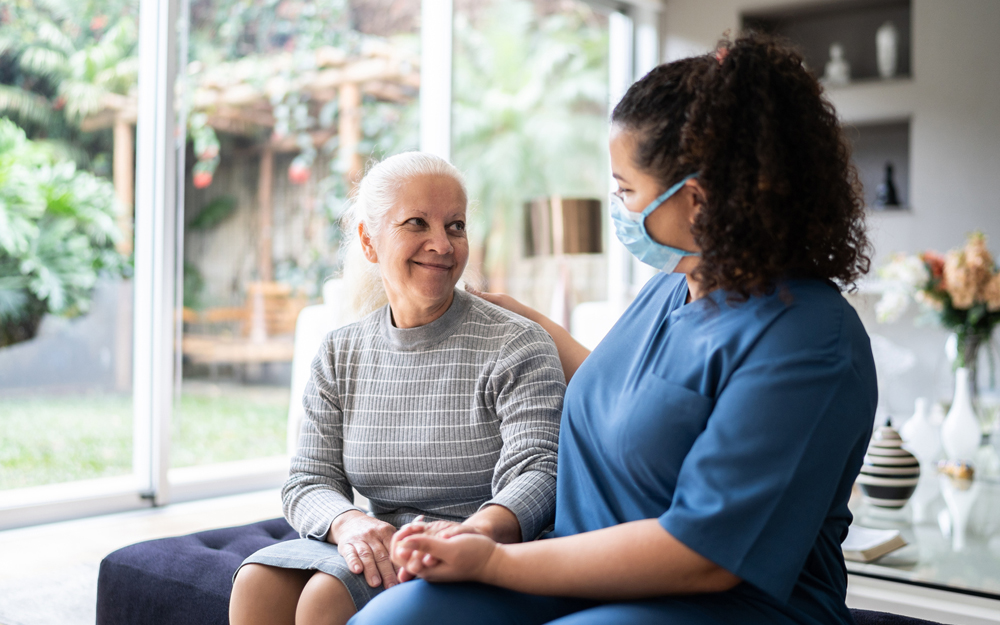How to Help a Loved One With Alzheimer's or Dementia
Date
June 14, 2023

Date
June 14, 2023
Credits
Medical providers featured in this article

In Brief
{{cta-block}}
Watching a loved one face dementia is often heartbreaking and disorienting.
They may forget where they are, repeat themselves, or get confused and agitated. Over time, as memory disorders damage cells in the brain and nervous system, they’ll need someone to care for them. Their speech, personality and thinking can also shift. There might even come a day when they don’t recognize you.
It’s called “the long goodbye.” While groundbreaking new medications could slow Alzheimer’s disease progression, there is still no cure for the estimated 6.7 million Americans with the condition, according to the Alzheimer’s Association.
On average, a person with dementia will live about 10 years or more after diagnosis, said Zaldy Tan, MD, director of Cedars-Sinai’s Memory and Aging Program, medical director of the Jona Goldrich Center for Alzheimer’s and Memory Disorders, and the Carmen and Louis Warschaw Chair in Neurology. Knowing what to expect can help you guide your loved one through those years with dignity.
Respect their wishes
Speak to your relative as early as possible in their illness, while they can still make decisions, about their plans and desires for end-of-life care and their finances—and honor them fully, Tan said.
“Just because they have dementia doesn’t mean they don’t have the right to live the way they choose to,” he said.
Losing independence can be one of the most challenging parts of a memory disorder.
“The trick is knowing how they liked to live before their illness,” he added.
When caring for or visiting with a relative with dementia, try to continue familiar activities they enjoyed. Did they often spend time with friends? Schedule regular meetings with one or two friends weekly or monthly. Did they have a sweet tooth? Then don’t cut out all sweets. Instead, space them out with healthier fruits and vegetables.
“Just because they have dementia doesn’t mean they don’t have the right to live the way they choose to.”
Dementia patients lose short-term memory first
In its initial stages, Alzheimer’s disease often causes patients to lose household or personal items, such as glasses, or to skip important appointments and tasks.
Families can help by offering cues, including placing labels on drawers, cabinets and doors to tell what’s inside and using calendars for medication schedules, meals, doctor’s appointments or due dates for bills.
While neurological diseases block these newer memories, old ones can resurface.
“Sometimes people revert to the past because that’s what’s accessible to them,” Tan said.
Their house and loved ones look different than they remember and therefore unrecognizable, and they might try to return to that past life in an attempt to “make sense of the world,” he explained.
Meet your loved one in their truth
There’s no need to correct them every time they believe or say something inaccurate—and it can do more harm than good.
If the person thinks they’re going to see a friend who died 10 years ago for a poker party, it will just upset and confuse them to mention the death. They’ll also likely forget within a few minutes.
“What does it accomplish?” Tan said. “They may not have the capacity to understand. Their reality is different from yours.”
Play along or change the topic, he suggested.
Use simple, direct and slow communication with yes and no questions (asked one at a time) and eye contact—in a quiet place with few distractions, the Alzheimer’s Association recommends. Visual and sensory signals like touch or pointing can also help you engage.
{{providers}}
Be vigilant with safety risks
People with dementia are more vulnerable to serious, life-threatening accidents, especially if they get lost or drive in advanced illness. About 60% of people with dementia wander at least once, often more, according to the Alzheimer’s Association.
Pay attention to warning signs, such as restlessness and trouble finding familiar places—and avoid busy areas like malls. Families should have an emergency plan, which could include enrollment in a wandering response service.
Remove or safely lock up all hazards, including car keys, matches, medications, power tools, alcohol, plastic bags and guns, the National Institute on Aging stresses in its home safety checklist.
Later-stage Alzheimer’s patients can also struggle with swallowing or chewing food, known as dysphagia, which can cause choking. If you or someone else notices them coughing while eating, discuss it with their doctor right away.
Mood swings are common
Dementia patients can struggle to communicate—especially as the illness advances to moderate to late stages—so you won’t always know if they’re sad, hungry, tired, bored or struggling with their appetite. If you try to force them to do something they don’t feel well enough to do or their needs aren’t met, it can show up as anger.
Investigate triggers and look for solutions, such as snacks or extra rest, if they’re feeling down.
“Do the thinking for them,” Tan suggested.
And reassure them that they’re safe.
Some people with Alzheimer’s disease become disturbed or even aggressive in the evenings, a phenomenon called “sundowning” that can be alarming for those who are unprepared.
The reason why is unclear. It’s possibly linked to hormones, biorhythms, fears about shadows in the dark or past memories that happened at night, he said.
Families can minimize distress with a consistent daily routine that includes enough exercise and socializing. Turn lights on early, and lessen activities and stimulation (TV, noise, heavy meals or baths) as the day winds down, experts suggest.
It takes a village
Tan encourages families to take turns with care responsibilities and lean on community resources, including adult daycare services and senior centers, when needed.
Alzheimer’s disease support groups and helplines can aid with grief and mental health.
Whether you’re the primary caregiver or a concerned relative, the emotional toll of a “long goodbye” is heavy, especially as it becomes harder for you to reach each other.
As you’re supporting your loved one, make sure you’re looking after yourself, too.





